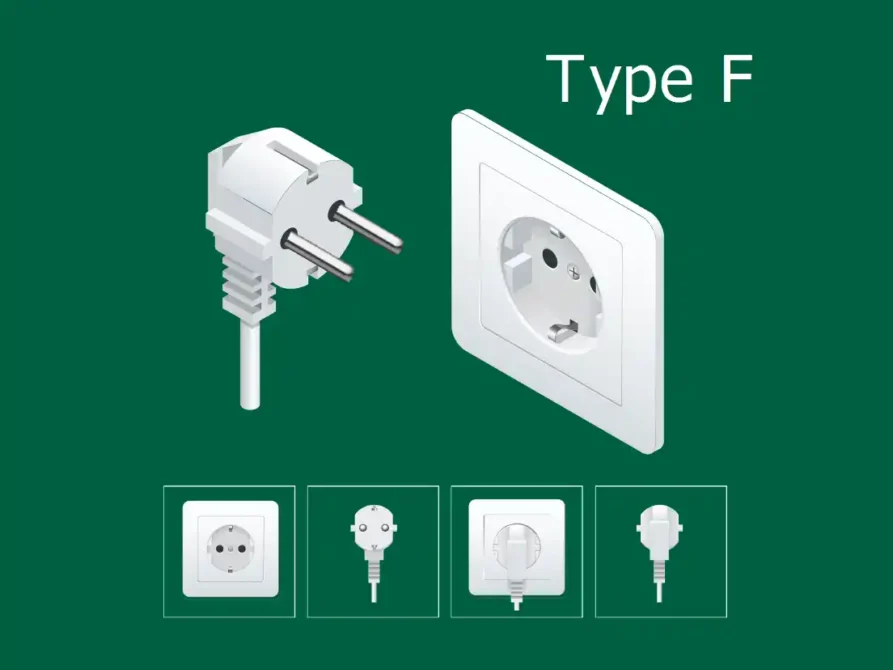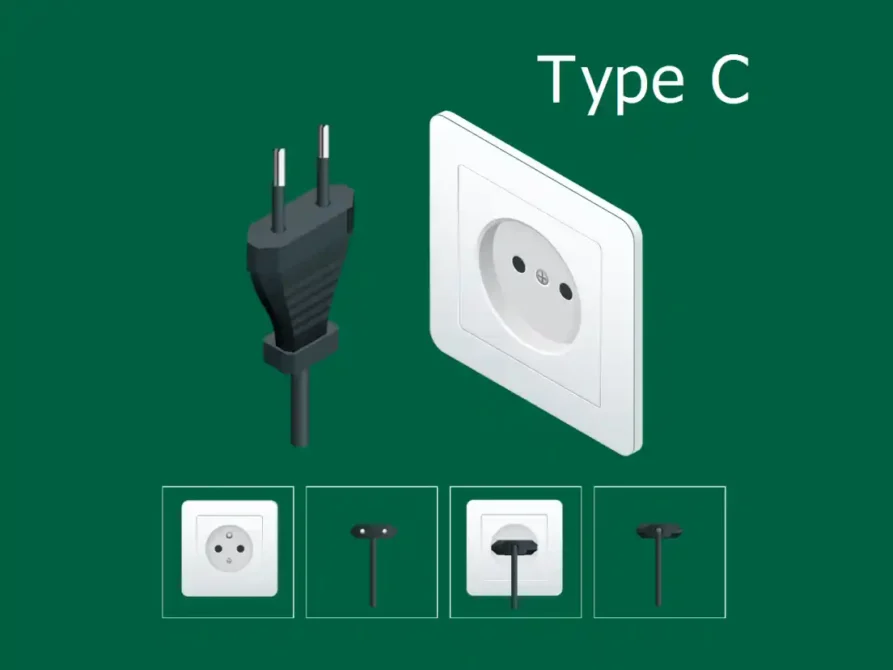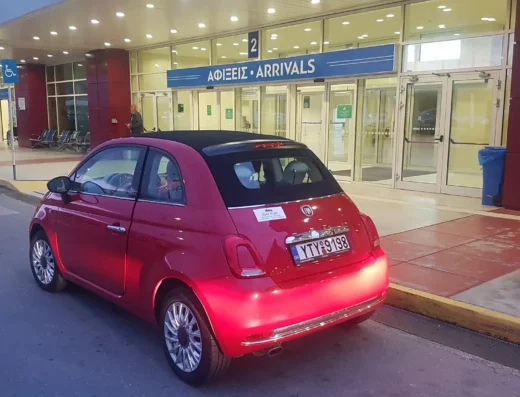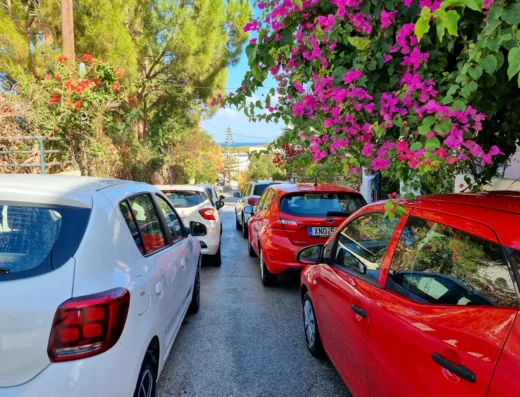If you’re planning a trip to Chania, Crete, Greece, this complete tourist information guide includes everything you need to know before you go. From electricity and currency to emergency numbers, shop hours, and local customs, here you’ll find all the essential travel information to enjoy your stay in Chania.
Tourist Information for Chania, Crete
Main info
- Country: Greece
- Capital of Greece: Athens
- Long Name: Hellenic Republic
- Official language: Greek
- Abbreviations: GR, GRC
- Currency: Euro (€)
- Climate: Mediterranean
- Population of Crete: 634.930 (2019 estimate)
- Population of Chania: 159.576 (2019 estimate)
- The country is a Presidential Parliamentary Democracy
- Calling code: The international calling code for Greece is +30
- Time Zone: GMT/UTC + 2h during Standard Time and GMT/UTC + 3h during Daylight Saving Time
Electricity in Greece: What Travellers Need to Know
If you’re planning a trip to Greece, you must know the local electricity standards to ensure your electronic devices function correctly and safely during your stay.
Voltage and Frequency
In Greece, the standard electricity voltage is 220 volts with a frequency of 50 Hz, which is used in most European countries. However, it differs from countries like the United States, where the voltage is 110 V and the frequency is 60 Hz. Before plugging them in, travellers should check whether their devices are compatible with the local voltage.
Plug Types Used in Greece
Greece uses two main types of electrical plugs:

Type F (Schuko – CEE 7/3 socket and CEE 7/4 plug)
This is the most widely used socket type across continental Europe. It has two round pins and two earth clips on the side. The design ensures good contact with the socket and supports higher loads, making it ideal for larger appliances. The Type F socket is compatible with Type F and Type C plugs.
Travel Tips: Adaptors and Safety
To avoid the risk of short circuits or damaging your devices:
- Ensure your electronic devices support 220 V / 50 Hz. If not, you will need a voltage transformer.
- Pack a travel adaptor compatible with Type F or Type C sockets, depending on your device's plug.
- Alternatively, check if your chosen accommodation provides adaptors for guests.
Being prepared will help you avoid electrical mishaps and ensure the safety of your devices while you enjoy your stay in Greece.
Currency
Greece uses the Euro (EUR, €). Credit and debit cards are widely accepted, but it is advisable to carry some cash, especially in smaller villages or for small purchases. ATMS are readily available in Chania.
Note that you can no longer withdraw cash directly from a bank counter. However, if you encounter issues with your card, banks operate from Monday to Friday, 8:00 a.m. to 2:00 p.m.
Also, remember that ATMS may be hard to find in inland areas of Crete. Euronet or central Greek banks usually operate the available machines.
Be cautious when making small purchases (under €5), mainly if you use Revolut, N26, or similar services — some stores might not accept your card for low-value transactions.
Currency exchange services are available at Chania International Airport and Souda Port, as well as in many locations in Chania town and several popular tourist destinations across Crete.
Passport & Visa Requirements
Greece, a member of the European Union, is part of the Schengen Zone, which allows its citizens to travel visa-free among 27 countries (all but four of which are EU members). Visitors from most EU countries and over 60 non-EU countries (including the USA, UK, Australia, and Canada) can travel to Greece without a visa for up to 90 days within any 180 days.
If you are a citizen of a country not on the visa-free list, you must apply for a Schengen visa before travelling. For the complete list of eligible countries and further information, visit the Greek Ministry of Foreign Affairs.
Ensure your passport is valid for at least six months from your arrival date.
Is Chania Safe?
Chania is generally a safe city and region for both locals and visitors. Whether you’re walking around the Old Town, exploring the Venetian harbour at night, visiting mountain villages like Theriso, or heading to popular coastal destinations such as Agia Marina, Platanias, Paleochora, Sfakia, or even Elafonissi, you’ll find the atmosphere relaxed, welcoming, and peaceful. Public transport is reliable, and most urban or rural areas feel safe to explore, even on your own. Like any popular travel destination, it’s always smart to take a few basic precautions—watch over your belongings and avoid leaving anything valuable visible, especially at the beach or in a parked rental car.
Serious crime is infrequent, and people are usually friendly and willing to help. Families, solo travellers, and couples regularly visit Chania and enjoy their holidays without issues. The city is also considered safe for female travellers and digital nomads.
If you ever need help, most locals speak at least basic English and are happy to assist. The police presence in central areas is visible but not intrusive, and emergency services are reliable.
Shop Opening Hours
The following shop hours refer specifically to Chania, Crete. Please note that shop schedules may vary in other parts of Greece.
There are two typical seasonal schedules for shop opening hours in Greece:
Summer Hours (April to October):
Monday & Saturday: 09:00 – 14:30
Tuesday, Thursday & Friday: 09:00 – 14:00 & 18:00 – 21:00
Wednesday: 09:00 – 14:00
Sunday: Closed
Winter Hours (November to March):
Monday & Saturday: 09:00 – 14:30
Tuesday, Thursday & Friday: 09:00 – 14:00 & 17:30 – 20:30
Wednesday: 09:00 – 14:00
Sunday: Closed
Supermarkets are usually open Monday to Saturday from 08:00 to 21:00, and are closed on Sundays, except in some tourist areas where extended hours may apply.
Please note that the same exception applies to shops in general—in tourist zones, especially during high season, many stores may remain open on Sundays and follow more flexible hours than the local schedule.
Public Holidays
Public holidays in Greece include:
January 1 – New Year’s Day
January 6 – Theophania / Epiphany
Ash Monday – 41 days before Orthodox Easter (movable holiday)
March 25 – Independence Day
Orthodox Easter Sunday and Monday – Movable holiday
May 1 – Labour Day
August 15 – Assumption of the Virgin Mary
October 28 – National Holiday (Ohi Day)
December 25 & 26 – Christmas Holidays
Shops and public offices may be closed on these days. Please note that some holidays are religious, particularly those related to Orthodox Easter, and may significantly affect store hours, transportation, and services, especially in smaller towns and villages.
In addition, during Christmas and New Year’s holidays, stores often follow a unique festive schedule, with extended evening opening hours and occasional Sunday openings in major cities and tourist areas. Please note that some holidays are religious, particularly those related to Orthodox Easter, and may affect store hours, transportation, and services more significantly, especially in smaller towns and villages.
Smoking Regulations
Smoking is banned indoors in all public places in Greece, including restaurants, bars, cafés, nightclubs, and large entertainment venues. The legislation also prohibits smoking in workplaces, transport stations, airports, taxis, and ferries.
While enforcement can vary depending on the location, many venues provide designated smoking areas, primarily outdoor or semi-open environments. It’s always best to ask before lighting up, especially in tourist areas where enforcement may be stricter. However, enforcement can vary; some venues may have designated smoking areas, especially outdoor spaces.
Time Zone
Greece is in the Eastern European Time Zone (EET), which is UTC +2. During daylight saving time (from late March to late October), the time shifts to UTC +3.
Daylight Saving Time (DST) occurs on the last Sunday of March, when clocks move one hour ahead. They move one hour back on the last Sunday of October.
Greece is two hours ahead of the United Kingdom during standard time and one hour ahead during daylight saving time, as both countries adjust their clocks on the same dates. (From late March to late October, the time shifts to UTC +3.)
Emergency Numbers
Ambulance Service: 166
SOS Doctors: 1016
Duty Hospitals and Clinics: 1434
Pharmacies: 1434
Poison Control Centre: +30 210 77 93 777
Fire Brigade: 199
National SOS Helpline for Children: 105
Immediate Intervention of the Coast Guard: 108
Police: 100
Tourism Police: 171
(The tourist police operate a 24-hour call centre, offering information and assistance to tourists in Greek, English, French, and German.)European Emergency Number: 112
(The European Emergency Number was established to assist citizens 24/7 in European Union countries when they require assistance. Calls from a landline, mobile phone, or telephone booth are toll-free.)
Getting to Chania
Chania is served by Chania International Airport (CHQ), with flights from Athens, Thessaloniki (year-round), and major European cities.
The city also has a ferry connection via Souda Port, with daily overnight sailings to and from Piraeus (Athens) throughout the year. During the summer season, there are also additional daytime departures.
Souda Port is also a frequent stop for cruise ships, welcoming numerous arrivals each season.
In western Crete, the Port of Kavonisi in Kissamos provides ferry connections to Kythira and the Peloponnese, offering an alternative maritime route to the mainland.
Getting Around Chania
You can explore Chania on foot, by motorcycle, on public KTEL buses, by taxi, or by car rental. Local buses are reliable and connect the city to nearby beaches, towns, and inland villages.
A local city bus network operates within Chania, making it easy to reach different neighbourhoods and key points of interest without needing a car.
Can you drink tap water in Chania?
Tap water in Chania is generally safe, though many locals and visitors prefer bottled water.
However, please note that water used for agricultural irrigation is unsuitable for drinking. If you see an outdoor faucet in a field or rural area, do not drink from it, as it is likely connected to non-potable water.
Additionally, avoid drinking directly from natural springs or fountains in the countryside, as animals often access them and may not be adequately treated for human consumption.
Weather and Best Time to Visit
Chania has a Mediterranean climate. The best time to visit is May to October, when the weather is hot in the summer and mild and rainy in the winter.
For more detailed and up-to-date weather information for today or the coming week, please visit the “The Weather in Chania” section.
Languages Spoken
While Greek is the official language, many locals in Chania speak English fluently, especially in tourist areas, hotels, restaurants, and shops, making communication relatively easy for international visitors.
You may also hear the Cretan dialect called ” Kritika ” in Crete. This traditional form of Greek includes many unique words and expressions that differ from standard Greek. It’s most commonly spoken in inland villages and rural areas, offering visitors a taste of the island’s rich linguistic heritage.
Useful Greek Phrases
Hello: Γειά σας (Geiá sas)
Good morning: Καλημέρα (Kaliméra)
Good evening: Καλησπέρα (Kalispéra)
Good night: Καληνύχτα (Kaliníkhta)
Excuse me / Sorry: Με συγχωρείτε (Me synchoreíte)
Thank you: Ευχαριστώ (Efcharistó)
Please / You’re welcome: Παρακαλώ (Parakaló)
Yes / No: Ναί / Όχι (Naí / Óchi)
How much is it?: Πόσο κάνει; (Póso kánei?)
Local SIM Cards / Wi-Fi
If you travel from an EU country, you can use your mobile phone in Greece without extra roaming charges. Under the “Roam Like at Home” policy, EU travellers can make calls, send texts, and use data in Greece at the same rates as in their home country. However, fair usage limits may apply depending on your mobile plan, and excessive or long-term use may lead to surcharges.
Travellers who prefer local options or need additional mobile data can purchase prepaid SIM cards from major Greek providers such as COSMOTE, Vodafone, and Nova. These are at airport kiosks, mobile phone shops, and authorised retailers across Chania.
To activate a SIM, present your passport at the point of purchase, as Greek regulations require. Several international providers also offer eSIMs, which travellers can activate instantly online—an ideal option for tech-savvy users seeking quick and easy setup.
Wi-Fi is also widely available in hotels, cafés, and restaurants throughout Chania. Free and open Wi-Fi access is also available in many public areas of the city, including the central KTEL bus station, Chania International Airport, and other key public spaces.
Pharmacies & Healthcare
Pharmacies in Chania are well-stocked and often have English-speaking staff. In emergencies, the Chania General Hospital is the central public hospital in the area. However, it is often understaffed, and visitors may experience delays or inconvenience during their visit.
Four regional health centres in the Chania region provide basic care and first aid services. They are located in Vamos, Kissamos, Kandanos, and Chora Sfakion.
Additionally, private hospitals and clinics in Chania offer a wider range of medical services, usually with shorter waiting times.
Tourist Information Offices
While several Tourist Information Offices operate in Chania, we recommend visiting the Tourist Information Office at 40 Kriari Street, Chania, which is open year-round and can offer reliable guidance and assistance to visitors.




